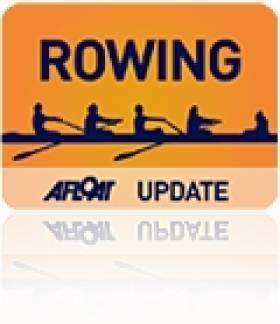Displaying items by tag: Coaches Conference
Limerick Hits Mark With Well-Run World Rowing Coaches Conference
# ROWING: The World Rowing Coaches Conference in Limerick over the weekend saw Irish delegates mix with the men and women who guided crews to glory at London 2012 in a well-run event. The presentation by Thomas Poulsen of Denmark was highly-praised, and there was a thought-provoking talk by German team psychologist Dr Annelen Collatz. Gearoid Towey spoke about the importance of managing the transition of athletes to life away from top-class sport and Martin McElroy also made a presentation.
The year of the Olympic Games is a good time to hold this event and delegates got a feel of being in the engine of world rowing as top coaches and mentors thrashed out proposed changes to rules which can be made early next year. A proposal to put the onus on each athlete to reach a set weight in a lightweight boat was controversial and discussed at length on Saturday evening.
The World Rowing Awards for 2012 were presented to the South Africa lightweight four (male crew of the year) and Britain’s women’s double sculls (female crew of the year). The coach of the year was Dick Tonks of New Zealand and single sculler Huang Cheng of China took the award for adaptive crew of the year. Di Ellis was given the award for distinguished service to rowing.
At the conclusion of the business side of the event, John Boultby, the chairman of Fisa’s competitive rowing committee, said the logistical organisation in Limerick had been “superb”.






























































